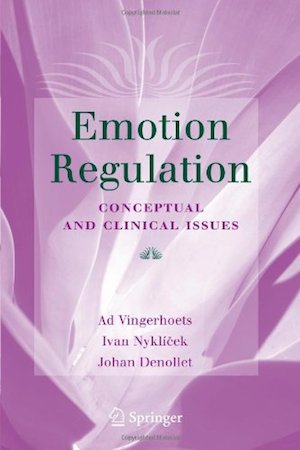Emotion Regulation: Conceptual and Clinical Issues (edited with Ivan Nyklíček and Marcel Zeelenberg)
/Emotions: basic products of human functioning, intimately involved in physical health, they have been alternately embraced and ignored by generations of researchers and practitioners. Emotion Regulation offers a much-needed corrective to the conventional clinical wisdom, updating the knowledge base on emotions—specifically their expression and inhibition—as they affect stress, health, and well-being. An international team of researchers from a variety of fields sort out conflicting affect/health theories, and provide the latest findings on inter- and intrapersonal functions of emotions while acknowledging the role of individual variables.
The book covers conceptual, developmental, and clinical issues and balances core topics with emerging areas of interest, including:
• Non-expression of emotion in the affective disorders, and innovative approaches to treatment
• Five types of alexithymia, and their relationships to health problems
• Aggression as maladaptive coping
• Emotional suppression in eating disorders
• Children’s somatic complaints: an emotional-competence perspective
• Attachment perspectives on adult crying
• Emotional intelligence: is it really intelligence, and can it really be assessed?
• Clinical applications of the writing disclosure paradigm
This wealth of insights makes Emotion Regulation a practice-enhancing work of particular interest to clinical and health psychologists, neuropsychologists, and psychiatrists working in medical settings. The book is comprehensive enough to be a useful postgraduate text for these and related fields.


